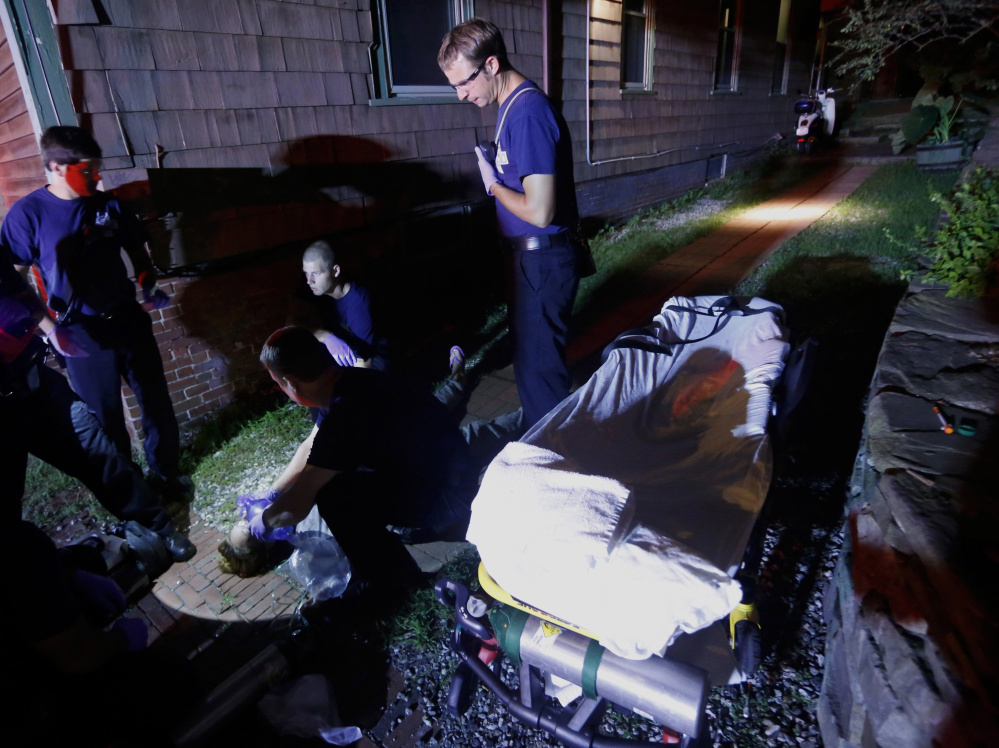The advice President Trump received from his commission on the nation’s opioid crisis wasn’t what he wanted to hear.
So he seems to be ignoring it. Which denigrates not only commission members he appointed but also the addicted and their loved ones whom he promised during the campaign to help.
While his commission’s July 31 interim report emphasized treatment programs and broadened social services, Trump eight days later had a different focus.
“Strong law enforcement is absolutely vital to having a drug-free society,” Trump said. “I’m confident that by working with our health care and law enforcement experts we will fight this deadly epidemic and the United States will win.”
Trump is most comfortable talking tough about winning battles, sealing borders and stepped-up law enforcement.
However, that misses the message of the bipartisan Commission on Combating Drug Addiction and the Opioid Crisis, chaired by New Jersey Gov. Chris Christie.
Its “most urgent” recommendation called on Trump to declare a national emergency, which could give the administration flexibility to redirect federal funding to treatment options.
Health and Human Services Secretary Tom Price said there was no need for such a declaration. It’s not clear what the administration plans to do instead.
As the commission noted, “the opioid epidemic we are facing is unparalleled.” Drug overdoses kill an estimated 142 people a day in the United States, more than gun homicides and car accidents combined.
Americans consume more opioids than any other country. Nearly two-thirds of drug overdoses in 2015 were linked to opioids like Percocet, OxyContin, heroin and fentanyl.
The president emphasizes a legitimate concern about heroin coming in from Mexico and fentanyl from China. But there’s as great or greater concern within our borders.
Prescription opioids have quadrupled since 1999, as have opioid overdoses. “We have an enormous problem that is often not beginning on our street corners,” the commission wrote. “It is starting in doctor’s offices and hospitals in every state in our nation.”
In California, we know too well that doctors are part of the problem. For four years they fought state legislation, approved last year, requiring them to check a centralized database before prescribing addictive drugs. The database shows if patients have been “doctor shopping” to stock up on the same drugs elsewhere.
Whatever the cause of addiction, 21 million people in this country have substance abuse problems. Only 10 percent are receiving specialized treatment.
That’s why the commission proposed relaxation of Medicaid restrictions to increase treatment capacity; easing of Medicare rules to enable more medication-assisted treatment with drugs such as methadone; and enforcement of health plan coverage laws to ensure addicts receive adequate care.
The commission also called for equipping all law enforcement with naloxone, which rapidly reverses drug overdoses, and for laws legally protecting people seeking treatment for overdoses.
None of this jibes with the president’s push to repeal the Affordable Care Act or his get-tough approach to drugs. If only he’d listen to another perspective.
Send questions/comments to the editors.



Success. Please wait for the page to reload. If the page does not reload within 5 seconds, please refresh the page.
Enter your email and password to access comments.
Hi, to comment on stories you must . This profile is in addition to your subscription and website login.
Already have a commenting profile? .
Invalid username/password.
Please check your email to confirm and complete your registration.
Only subscribers are eligible to post comments. Please subscribe or login first for digital access. Here’s why.
Use the form below to reset your password. When you've submitted your account email, we will send an email with a reset code.